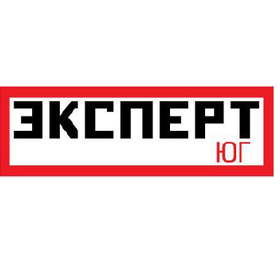 The Federal Tax Service of Russia prepared proposals for amending the provisions of the Tax Code of the Russian Federation that would allow third parties to perform the taxpayer's duty to pay taxes and fees to the budget system of Russia. Yury Mirzoev, CEO of the National Law Company “Mitra”, told a REGNUM correspondent that the tax authorities responded to an appeal about the possibility of the spouse to pay taxes for his wife.
The Federal Tax Service of Russia prepared proposals for amending the provisions of the Tax Code of the Russian Federation that would allow third parties to perform the taxpayer's duty to pay taxes and fees to the budget system of Russia. Yury Mirzoev, CEO of the National Law Company “Mitra”, told a REGNUM correspondent that the tax authorities responded to an appeal about the possibility of the spouse to pay taxes for his wife.
"Indeed, today, the Tax Code of the Russian Federation stipulates that, as a general rule, payment of the tax can be made only by the taxpayer and only at the expense of own funds. This approach is consistently carried out in judicial practice. Thus, in the ruling No. 41-O of January 22, 2004, the Constitutional Court of the Russian Federation came to the conclusion that payment documents for the payment of taxes should come from the taxpayer and be signed by him, and payment of the corresponding amounts of taxes should be made from the taxpayer's funds, that is, at his own expense. The Supreme Court of the Russian Federation in its Decree No. 310-ES15-5239 of 31.07.2015 in case No. A36-1312 / 2014 also indicated that the transfer of money by one legal entity for another can`t be regarded as the fulfillment by the latter of the obligation to pay the relevant taxes that must Paid by the taxpayer from own funds. Thus, the constitutional obligation to pay legally established taxes and fees is linked with the person of the obligated person, "the lawyer explained.
Does it mean that it is inadmissible to participate in the process of making a mandatory payment to the budget of a third person acting in the interests of the taxpayer? According to Mirzoev, the payment of the tax from the funds due to the taxpayer, but at the disposal of a third person, does not contradict the notion of tax. However, the proposed introduction of amendments to the Tax Code of the Russian Federation with a view to giving third parties the opportunity to fulfill the taxpayer's duty to pay taxes and fees to the budgetary system of Russia should be evaluated very carefully.
"On the one hand, such changes can simplify the process of paying taxes and resolve some of the problems that arise today when tax is paid in the interests of the taxpayer by its representative. On the other hand, the proposed changes may have negative consequences. So, it remains an open question about how the tax authorities will be able to personify the money that is used to pay taxes? Will these funds fall into the category of "outstanding payments"?
Another possible negative consequence of implementing the proposed changes is an increase in the costs associated with administering the receipt of taxes to the budget and the emergence of obstacles to effective tax control over the performance by each taxpayer of its duty to pay tax, "the lawyer said.
He also became interested in the question of formulating proposed amendments to the Tax Code of the Russian Federation. According to him, the realization of a good intention to give third parties the opportunity to discharge obligations of a taxpayer for the payment of taxes and fees can cover up the intention to change the established approach on the inadmissibility of collecting taxes for third parties from tax agents at the expense of their cash. Therefore, the tax consultant calls for such innovations to be treated very carefully.
Materials were taken from "Regnum"


